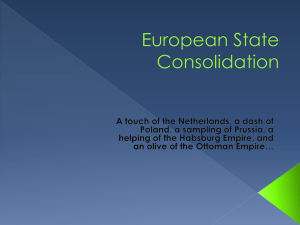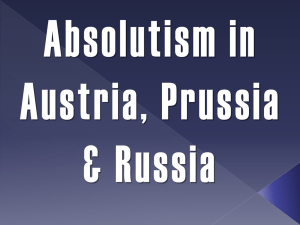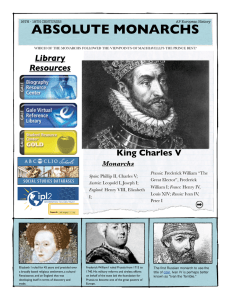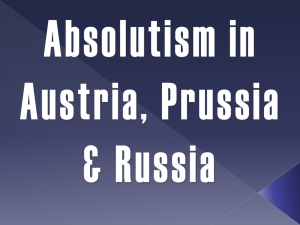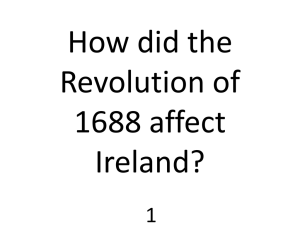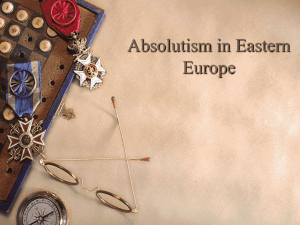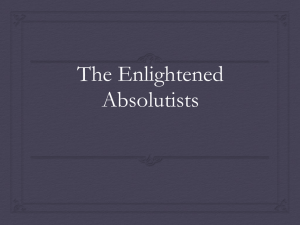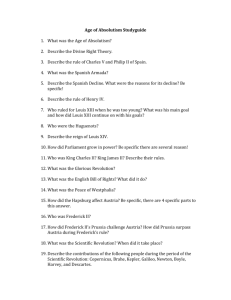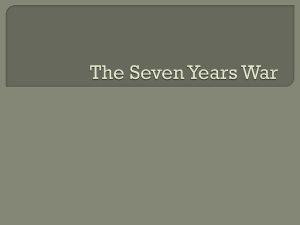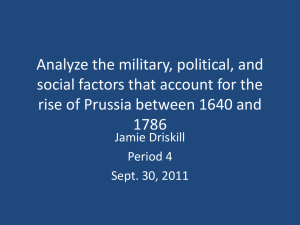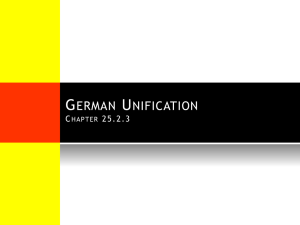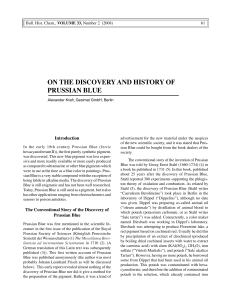Unit 3: Chapter 17 Review Quiz Answers
advertisement
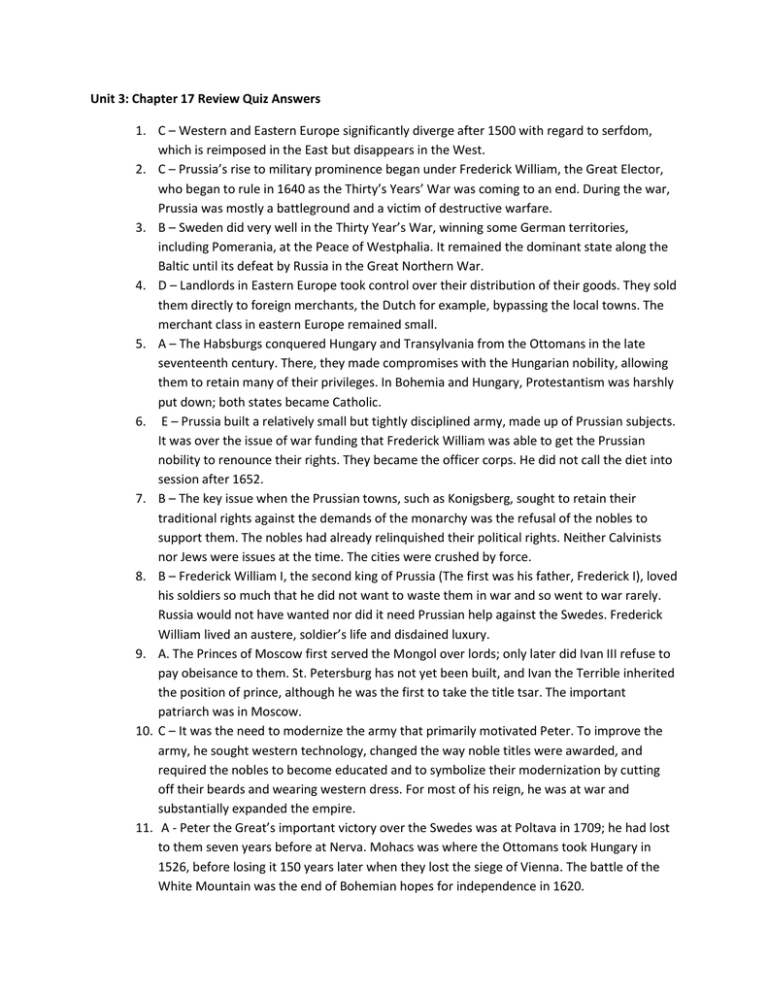
Unit 3: Chapter 17 Review Quiz Answers 1. C – Western and Eastern Europe significantly diverge after 1500 with regard to serfdom, which is reimposed in the East but disappears in the West. 2. C – Prussia’s rise to military prominence began under Frederick William, the Great Elector, who began to rule in 1640 as the Thirty’s Years’ War was coming to an end. During the war, Prussia was mostly a battleground and a victim of destructive warfare. 3. B – Sweden did very well in the Thirty Year’s War, winning some German territories, including Pomerania, at the Peace of Westphalia. It remained the dominant state along the Baltic until its defeat by Russia in the Great Northern War. 4. D – Landlords in Eastern Europe took control over their distribution of their goods. They sold them directly to foreign merchants, the Dutch for example, bypassing the local towns. The merchant class in eastern Europe remained small. 5. A – The Habsburgs conquered Hungary and Transylvania from the Ottomans in the late seventeenth century. There, they made compromises with the Hungarian nobility, allowing them to retain many of their privileges. In Bohemia and Hungary, Protestantism was harshly put down; both states became Catholic. 6. E – Prussia built a relatively small but tightly disciplined army, made up of Prussian subjects. It was over the issue of war funding that Frederick William was able to get the Prussian nobility to renounce their rights. They became the officer corps. He did not call the diet into session after 1652. 7. B – The key issue when the Prussian towns, such as Konigsberg, sought to retain their traditional rights against the demands of the monarchy was the refusal of the nobles to support them. The nobles had already relinquished their political rights. Neither Calvinists nor Jews were issues at the time. The cities were crushed by force. 8. B – Frederick William I, the second king of Prussia (The first was his father, Frederick I), loved his soldiers so much that he did not want to waste them in war and so went to war rarely. Russia would not have wanted nor did it need Prussian help against the Swedes. Frederick William lived an austere, soldier’s life and disdained luxury. 9. A. The Princes of Moscow first served the Mongol over lords; only later did Ivan III refuse to pay obeisance to them. St. Petersburg has not yet been built, and Ivan the Terrible inherited the position of prince, although he was the first to take the title tsar. The important patriarch was in Moscow. 10. C – It was the need to modernize the army that primarily motivated Peter. To improve the army, he sought western technology, changed the way noble titles were awarded, and required the nobles to become educated and to symbolize their modernization by cutting off their beards and wearing western dress. For most of his reign, he was at war and substantially expanded the empire. 11. A - Peter the Great’s important victory over the Swedes was at Poltava in 1709; he had lost to them seven years before at Nerva. Mohacs was where the Ottomans took Hungary in 1526, before losing it 150 years later when they lost the siege of Vienna. The battle of the White Mountain was the end of Bohemian hopes for independence in 1620. 12. C – Stenka Razin led a widespread revolt, which was ultimately put down; it was one of many. The conditions of the Russian peasants were getting worse and worse, so expectations were certainly not rising. There were very few urban workers with whom to make alliances. 13. B – The janissary corps was made up of slaves, which meant they had to be Christians as Muslims are not allowed to enslave other Muslims. Young men taken mostly from Balkans, were brought to Istanbul, raised as Muslims, and trained for government service. They rose to high positions in the military or civil administrations. 14. C – Prussia was the only one of the four that consisted of territories that were not contiguous. All four monarchs sought to expand their empire and establish firm control over their state, and they all embellished their capital cities. Prussia was also the only one that was not multiethnic. 15. B – The chief goal of the Pragmatic Sanction was to prevent the breakup of the Habsburg Empire when Charles VI died without a male heir; it allowed his daughter to inherit the Habsburg lands. It was not specifically designed to exclude Hohenzollerns or permit the Spanish Habsburgs from inheriting.
